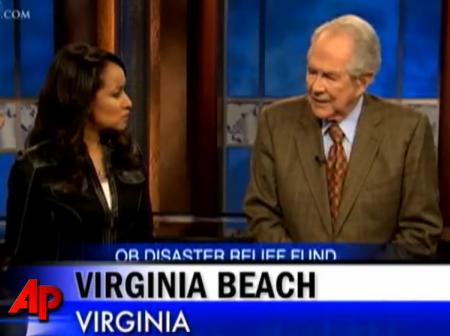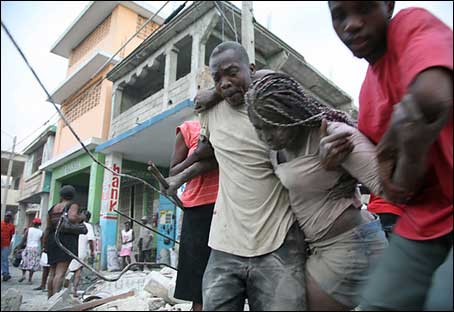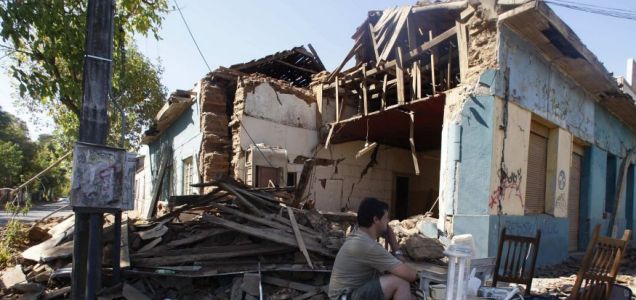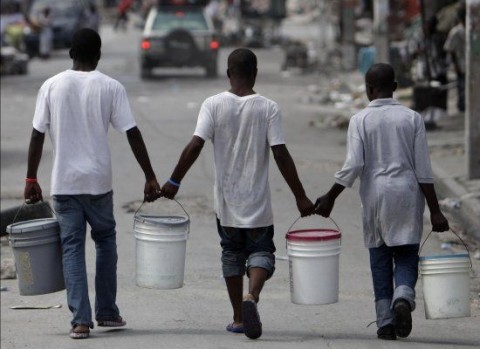 I was an army brat as a child. I never really had a hometown. My family and I just threw ourselves into whatever city we moved to and called it home. One place I found particularly intriguing was Albuquerque, New Mexico. Our visits to the Sandia Mountains, local canyons and to the beautiful desert valleys always filled me with a strange kind of awe.
I was an army brat as a child. I never really had a hometown. My family and I just threw ourselves into whatever city we moved to and called it home. One place I found particularly intriguing was Albuquerque, New Mexico. Our visits to the Sandia Mountains, local canyons and to the beautiful desert valleys always filled me with a strange kind of awe.
Some of the beauty of these landscapes lies in how unforgiving they are. When you stare out into the desert you are confronted by your own frailty. You are staring at a land that can swallow you up and devour you. Part of its beauty lies in its ability to remind us just how big the world really is and just how small we really are.
This is all around us in nature. It is one of its great mysteries. With all of man's scientific triumph, there is still much to remind us that we are small creatures in a dangerous world. We cannot stop hurricanes. We cannot predict the path of tornadoes. We can not out swim tsunamis. We can not make sense of the death tolls left by earthquakes like those so recently experienced in Haiti, Chile and Turkey. Strangely enough, people do try. Sadly, it seems to be Christians.
 The persons whose worldview should prepare them to handle these tragedies better than anyone make the greatest mockery of these events. I have continued to hear the recent span of earthquakes described by some of my Christian friends as God's judgment. Let me first say this: God is free to do whatever he wants. I trust him so much that if he said that these earthquakes were his handiwork then I would trust them to have come lovingly, and not a moment to soon. But, he hasn't said this. At least not to me.
The persons whose worldview should prepare them to handle these tragedies better than anyone make the greatest mockery of these events. I have continued to hear the recent span of earthquakes described by some of my Christian friends as God's judgment. Let me first say this: God is free to do whatever he wants. I trust him so much that if he said that these earthquakes were his handiwork then I would trust them to have come lovingly, and not a moment to soon. But, he hasn't said this. At least not to me.
And, I've yet to see a prophet raised up to prepare the world to interpret these recent disasters as specific judgments on any one nation or people group. I do not believe that Pat Robertson was that man. His insinuations that God used the quake to judge Haiti for a pact made with the devil while under the heels of the French, were not simply poorly timed, they were unChristian. I do not believe the Christian worldview encourages us to interpret disasters in these terms.
I often wonder whether or not it is even our 'faith' that leads us to say such things in the first place. I think we can sometimes fail to discern our own motivations. It can be dangerously alluring to think about these tragedies as judgments. For those of us who continue to proclaim the resurrection to a world that does not accept miracles or spread ourselves so thin in service to the Lord that our lives seem to disappear in the competitive spirit dominating so many of the world's cultures, a terrible act of God could really be cool water to our parched mouths.
 Think about it. Deep down we have this immature little hole in our belly that wants to be able to point at a huge crater in the ground and say, "See! I told you so! He is real and He is GOD." How terrible. Especially considering that we believe in a God that took death and suffering so seriously that he came into this world to challenge them directly and personally. Even unto the point of death himself.
Think about it. Deep down we have this immature little hole in our belly that wants to be able to point at a huge crater in the ground and say, "See! I told you so! He is real and He is GOD." How terrible. Especially considering that we believe in a God that took death and suffering so seriously that he came into this world to challenge them directly and personally. Even unto the point of death himself.
The terrible suffering on the cross rends our hearts and leaves us feeling small as we see the very God that created us dangling from it in the throes of death. To those that have eyes to see, this sight shakes our bones. We quiver in smallness and ache to be in right relationship with such a loving God. We strive to be like him. This means serving those in need and sharing with them in suffering. It means laying down our lives for others that they may have life. This is the appropriate response to the earthquakes we have seen -- a sense of our smallness, our need for God, and our desire to reveal his life-giving presence by bearing with others in their suffering.
Now, this begs the all-important question: How, if God so loves the world, could he let these types of disasters happen?
I don't believe these quakes (or other disasters) are directly God's doing. God loved us enough not to make us robots. God gave us freedom and we abused it. It goes all the way back to a garden long ago. We had the choice to remain in perfect, intimate harmony with God and his creation; or to risk it all in the disobedient quest for autonomy. We know the story. We ate the fruit from the only tree in all of creation that had any prohibitions on it. We separated ourselves from God. We broke creation. Sin and death and corruption entered the world.
 God made us, knowing that we would rebel, but he did not intend these tragedies for us. But he also knew what he would later do in Christ-how through the cross and the resurrection he would zealously guide creation back into harmony with his good will. Foreseeing this beautifully redemptive path ahead of him, God not only created the world, but declared it to be good. So, how do the cross and the ultimate goal for the world help frame these recent disasters?
God made us, knowing that we would rebel, but he did not intend these tragedies for us. But he also knew what he would later do in Christ-how through the cross and the resurrection he would zealously guide creation back into harmony with his good will. Foreseeing this beautifully redemptive path ahead of him, God not only created the world, but declared it to be good. So, how do the cross and the ultimate goal for the world help frame these recent disasters?
On the cross, God dealt with this disharmony that entered the world through our choice in the garden. Interestingly enough, he did not destroy us for having let such corruption into his creation. Instead, he condemned sin and conquered death. He went after decay and corruption itself. He did judge sin, but he did so by taking our punishment and our death onto himself, and setting us aside for life - a life that is now and will endure forever in the age to come. This news is so good that creation itself eagerly waits for the coming of this age.
 "For I consider that the sufferings of this present time cannot compare with the glory that is to be revealed to us. For creation waits with eager longing for the revealing of the sons of God…Creation was subjected to futility (or frustration), not willingly, but because of him who subjected it, in hope that creation itself will be set free from its bondage to corruption and obtain the freedom of the glory of the children of God (Romans 8:18-21)." This is what Christians believe.
"For I consider that the sufferings of this present time cannot compare with the glory that is to be revealed to us. For creation waits with eager longing for the revealing of the sons of God…Creation was subjected to futility (or frustration), not willingly, but because of him who subjected it, in hope that creation itself will be set free from its bondage to corruption and obtain the freedom of the glory of the children of God (Romans 8:18-21)." This is what Christians believe.
This, then, is the judgment that we should see in the earthquakes: the death, decay, corruption and natural disasters, ushered in by the fall, are the true enemies of God-not necessarily the people upon which they fall. They threaten all peoples, and all nations; they are cosmic problems that God has dealt with in Jesus, and will completely eradicate at the second coming. He has given us his resurrection life-a life that empowers us to look at the brokenness that is around us and know that the world is still the creation of a good God, because we trust him to redeem it. We know that in that day "he will swallow up…the covering that is cast over all peoples, the veil that is spread over all nations, he will swallow up death forever" (Isaiah 25:7-8).
We look at death and sorrow wrought of large scale natural disasters and our hearts are rubbed raw by enemies too great for human autonomy and pride to break. We stare at a very real ugliness, but we Christians stare at it with the presence of the "Spirit of him who raised Jesus from the dead" (Romans 8:11) dwelling in us. Thus, we need not proclaim these disasters as judgments on any given people. They are themselves the enemy. They are the very manifestation of everything that God does not will for His creation.
 K. Swann is a singer-songwriter in New York City with cutting edge thoughts on life, art and spirituality. He is currently studying Biblical Studies and Theology at Nyack College.
K. Swann is a singer-songwriter in New York City with cutting edge thoughts on life, art and spirituality. He is currently studying Biblical Studies and Theology at Nyack College.

